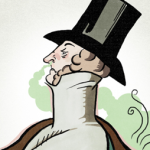 In “Books provide Guantánamo detainees an ‘escape from darkness,'” The Miami Herald recently reported details of a fairly substantial collection of books that was anonymously donated to Guantánamo prison, which now has a library of some 19,000 books.
In “Books provide Guantánamo detainees an ‘escape from darkness,'” The Miami Herald recently reported details of a fairly substantial collection of books that was anonymously donated to Guantánamo prison, which now has a library of some 19,000 books.
Among them is Rabbit at Rest, the fourth installment in Updike’s Rabbit quartet.
“The approved list included poetry, fiction, art, math, history, religion, politics and current events—plus chemistry, physics and electronics books, which may strike some as strange for a place that the United States says imprisons wannabe bomb makers and hijackers,” reporter Carol Rosenberg writes.
“Name a classic you read in school and it’s probably here—from John Steinbeck to William Shakespeare to Mark Twain. Also, four novels by Haruki Murakami, who happens to be the donor’s favorite author. About half are in Arabic or are dual Arabic-English side-by-side translations.
“Some titles might suggest a subliminal message for an indefinite detainee in the war-on-terror—Charles’ Dickens Hard Times, Gabriel Garcia Marquez’s One Hundred Years of Solitude and Ernest Hemingway’s A Farewell to Arms.
Or John Updike’s Rabbit at Rest?



